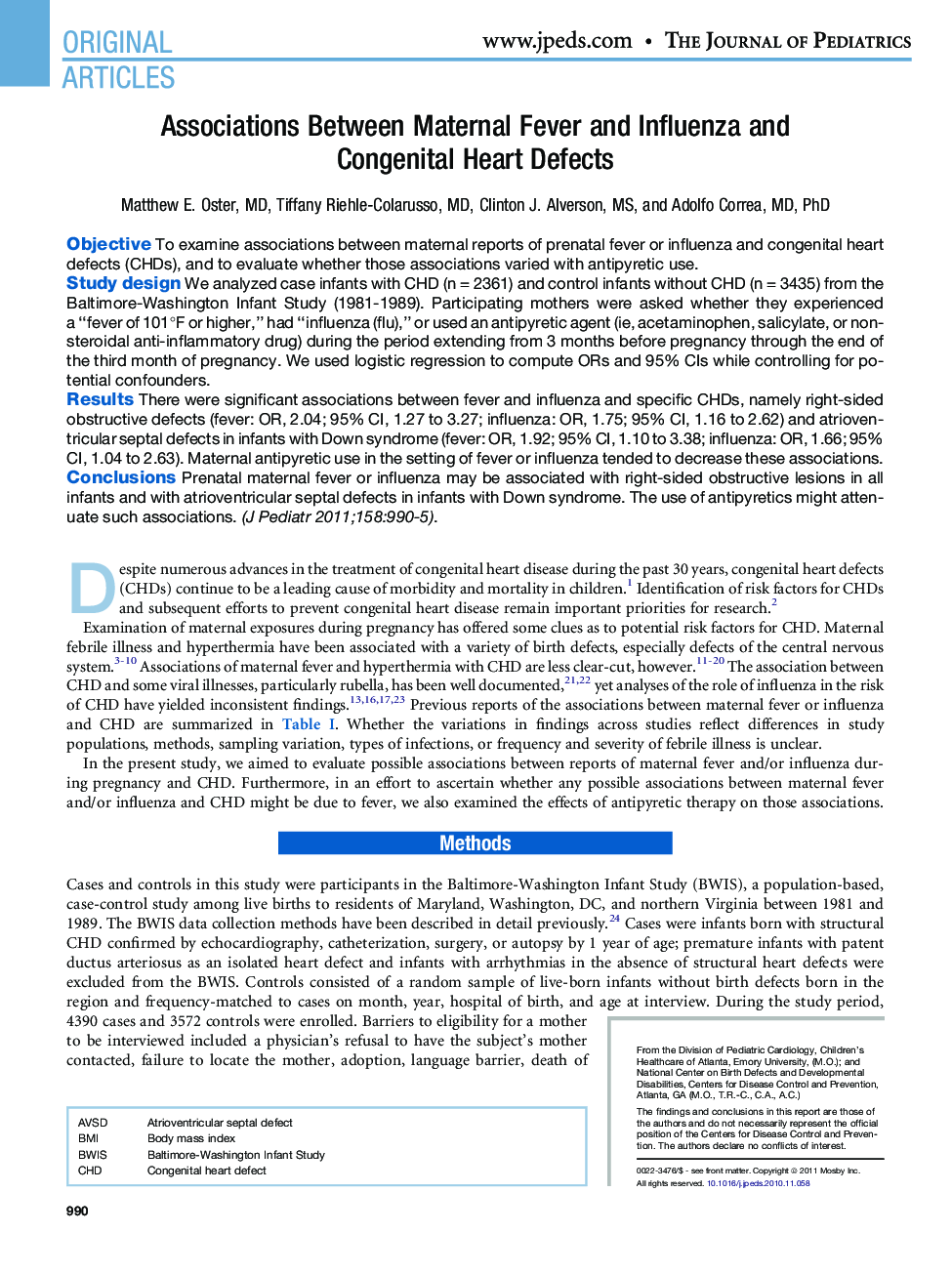| Article ID | Journal | Published Year | Pages | File Type |
|---|---|---|---|---|
| 4166572 | The Journal of Pediatrics | 2011 | 6 Pages |
ObjectiveTo examine associations between maternal reports of prenatal fever or influenza and congenital heart defects (CHDs), and to evaluate whether those associations varied with antipyretic use.Study designWe analyzed case infants with CHD (n = 2361) and control infants without CHD (n = 3435) from the Baltimore-Washington Infant Study (1981-1989). Participating mothers were asked whether they experienced a “fever of 101°F or higher,” had “influenza (flu),” or used an antipyretic agent (ie, acetaminophen, salicylate, or nonsteroidal anti-inflammatory drug) during the period extending from 3 months before pregnancy through the end of the third month of pregnancy. We used logistic regression to compute ORs and 95% CIs while controlling for potential confounders.ResultsThere were significant associations between fever and influenza and specific CHDs, namely right-sided obstructive defects (fever: OR, 2.04; 95% CI, 1.27 to 3.27; influenza: OR, 1.75; 95% CI, 1.16 to 2.62) and atrioventricular septal defects in infants with Down syndrome (fever: OR, 1.92; 95% CI, 1.10 to 3.38; influenza: OR, 1.66; 95% CI, 1.04 to 2.63). Maternal antipyretic use in the setting of fever or influenza tended to decrease these associations.ConclusionsPrenatal maternal fever or influenza may be associated with right-sided obstructive lesions in all infants and with atrioventricular septal defects in infants with Down syndrome. The use of antipyretics might attenuate such associations.
